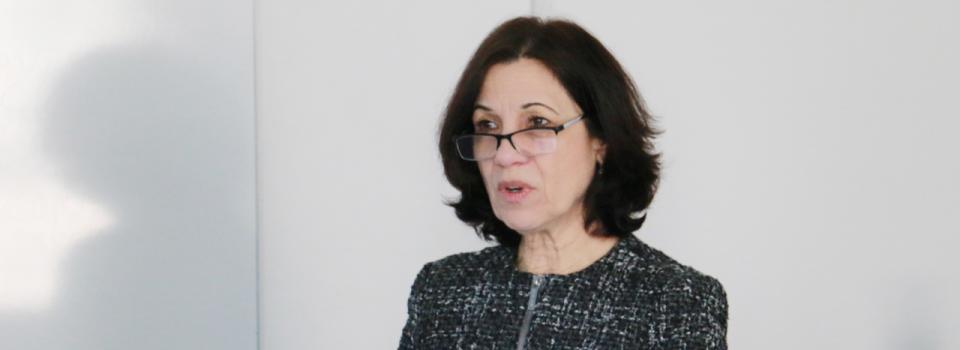Mar 28 2016
Published by
NYU Shanghai

The NYU-ECNU Institute for Social Development at NYU Shanghai (the Institute) hosted a 3-day training workshop titled "Trauma-Informed Care and Practice" from March 11 to 13, 2016. This was the sixth training workshop that the institute has provided since its inception. Dr. Carol Tosone, Associate Professor at the NYU Silver School of Social Work, was invited to provide the training, and she shared her knowledge of and skills in trauma-informed care. Over 20 participants, including social work professionals from hospitals, social service agencies, and universities across China attended the workshop.
Dr. Tosone is a Distinguished Scholar in Social Work in the National Academies of Practice in Washington, DC, and is chair of the National Association of Social Workers Private Practice Committee. She completed her psychoanalytic training at the Postgraduate Center for Mental Health in New York City, where she received the Postgraduate Memorial Award. Dr. Tosone received the Fulbright Senior Specialist Award for teaching at Hanoi University of Education in Vietnam and served as visiting professor at universities in Asia and the Middle East. She has taught as a Distinguished Visiting Lydia Rappaport Professor at Smith College for Social Work and as a visiting faculty member at the University of Pennsylvania Clinical Social Work Doctoral Program. Dr. Tosone is editor in chief of the Clinical Social Work Journal and serves on the editorial boards or as a consulting reviewer to many other professional journals.
During the 3-day workshop, Dr. Tosone gave a detailed introduction of trauma, the theory behind trauma, and interventions. Topics included types and models of trauma; diagnosis and assessment of trauma (e.g., Post-Traumatic Stress Disorder, PTSD); the neuroscience of trauma; individual and community responses to different types of trauma, such as those caused by natural disaster; trauma-focused cognitive behavior therapy; mindfulness; and interventions for traumatic grief. A range of traumatic events, including tsunami, earthquakes, 9/11, war, and domestic violence, were introduced and discussed to allow participants to gain a comprehensive understanding of the differences and commonalities between each type of traumatic experience. Dr. Tosone also paid particular attention in her presentation to how Eastern and Western individuals and societies tend to process and treat trauma. She also covered topics that are unique to China; in particular, she discussed how people might react to losing their only child given the policy and cultural contexts, as well as the treatments that might be effective in treating this type of grief.
Through group discussions and role-plays, participants obtained a deep understanding of the theory and characteristics of types of trauma; learned how to work with their clients through care, sensitivity, and empathy; and learned about effective interventions that they could apply in working with their clients, with particular attention to cultural contexts. During the training, participants also learned how to use assessment instruments, including the Posttraumatic Checklist, the Adult Attachment Interview, and the Professional Quality of Life Scale to help assess symptoms for clients who have experienced traumatic events, as well as for staff who work with such clients.
After the workshop, many participants shared their feedback. They emphasized the importance of learning about attachment theory and the neuroscience of trauma, especially by practicing with one-to-one role-play and learning from both the speaker’s and their peers’ practice skills. Participants also expressed their thoughts on having more extended workshop days so that they could gain more hands-on experience handling trauma-related issue with their clients, to have further discussion with peers, and to share more clinical cases.
Upon completing the 3-day workshop on trauma-informed care, Dr. Carol Tosnoe presented the participants with a training certificate.


